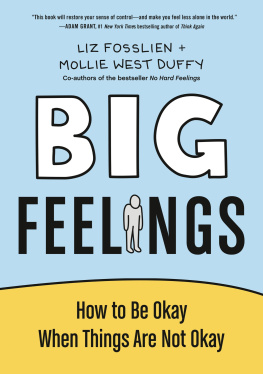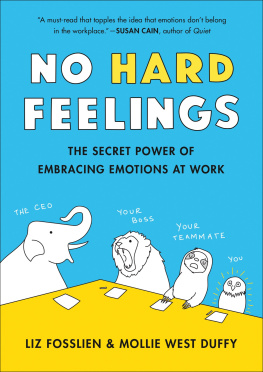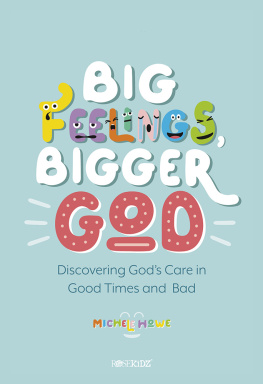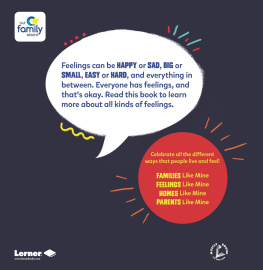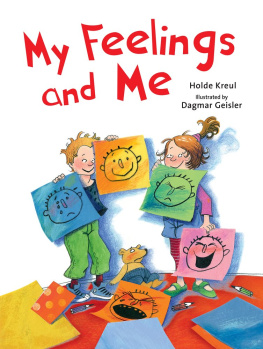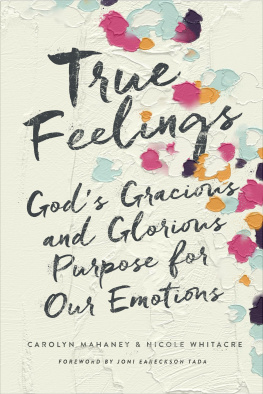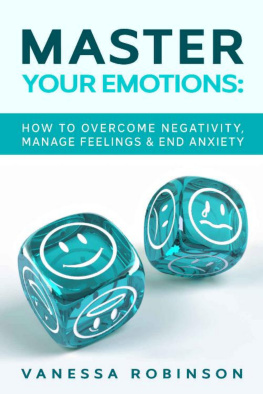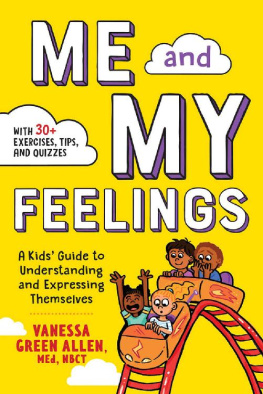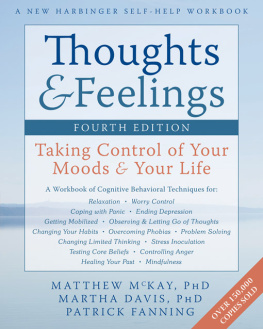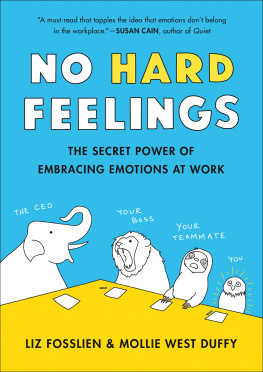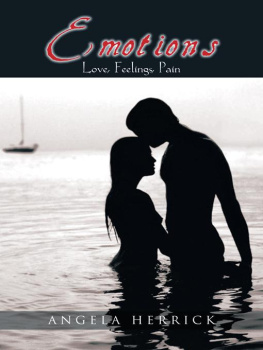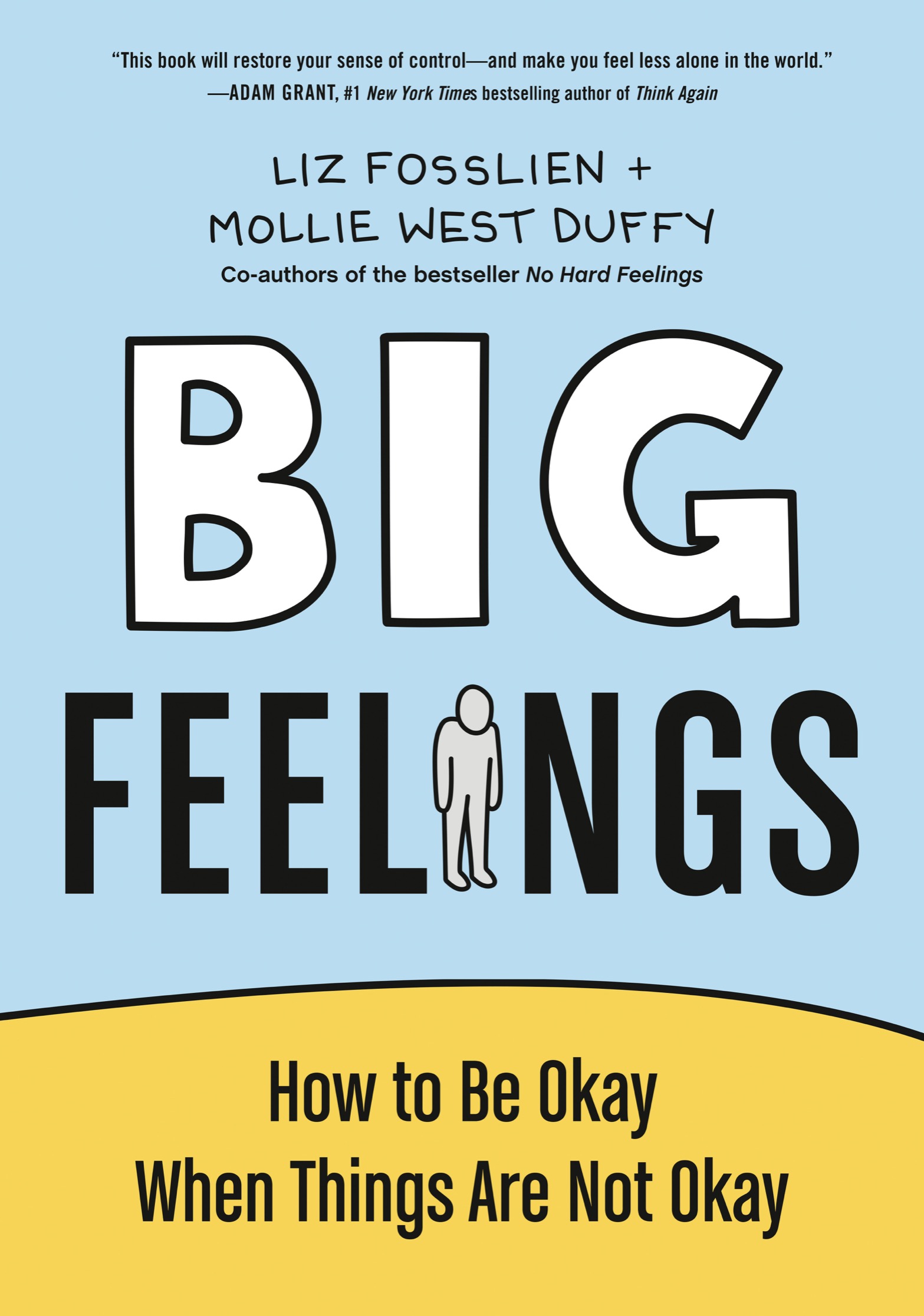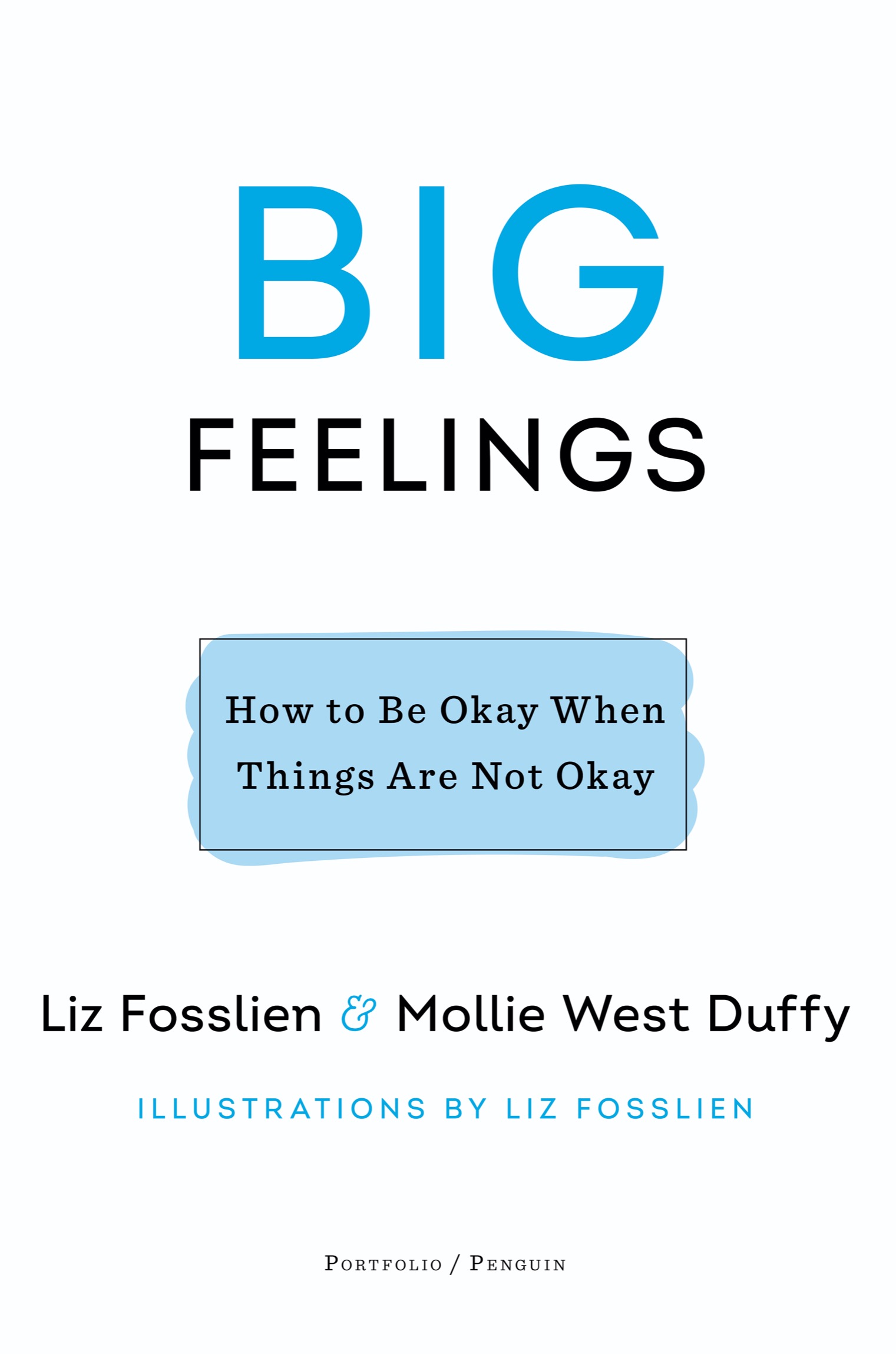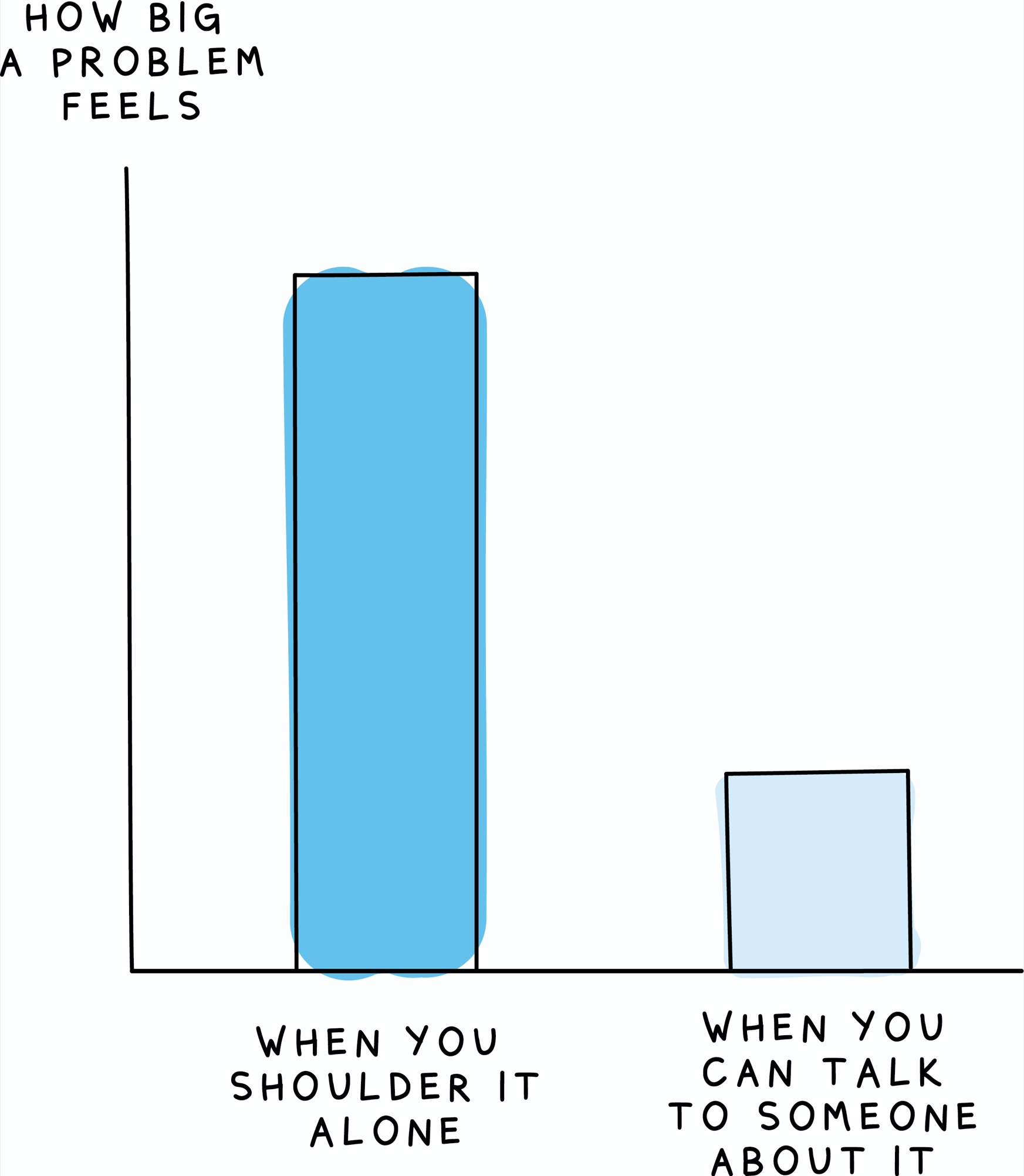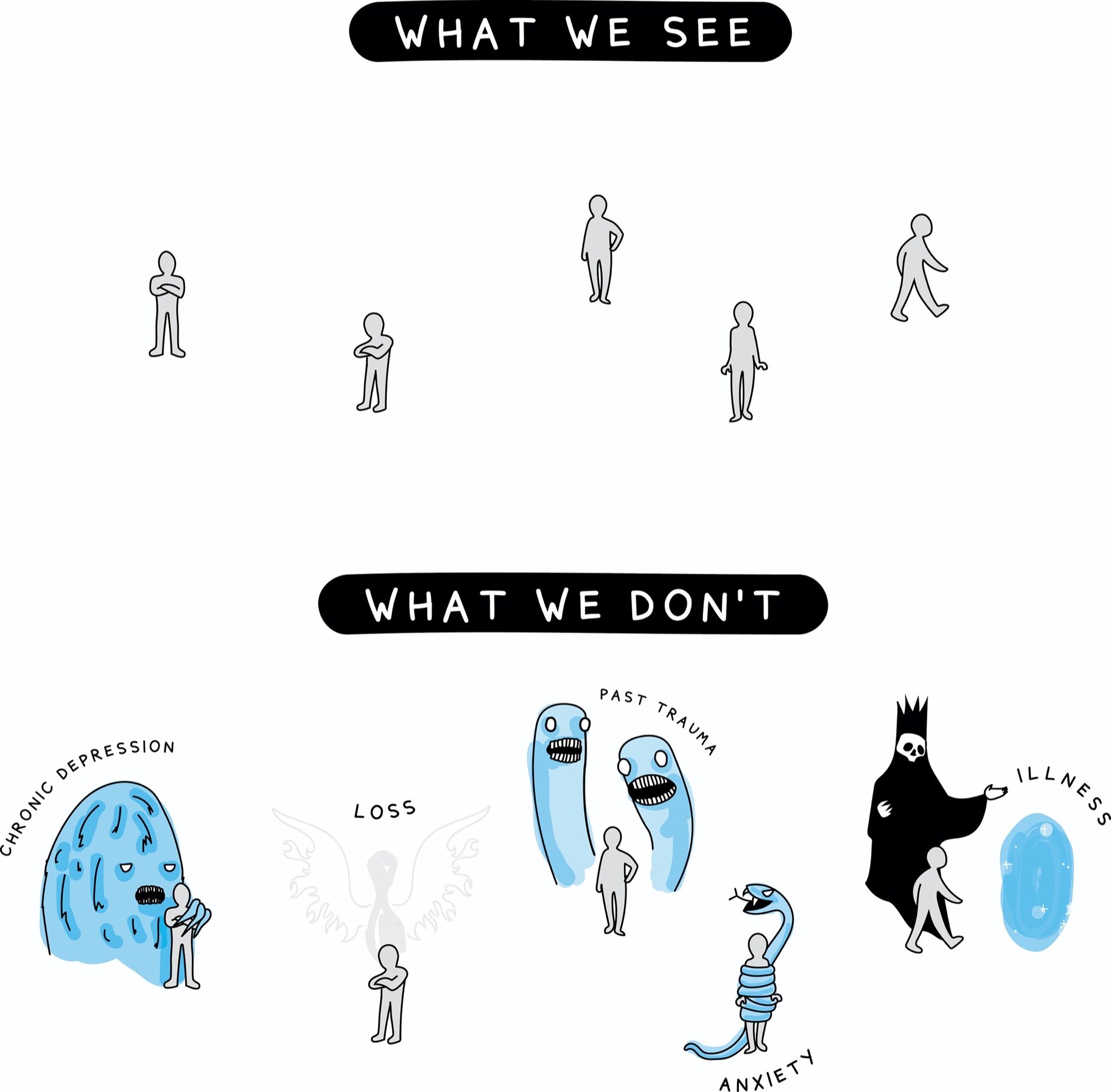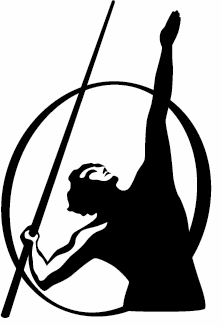
Portfolio / Penguin
An imprint of Penguin Random House LLC
penguinrandomhouse.com
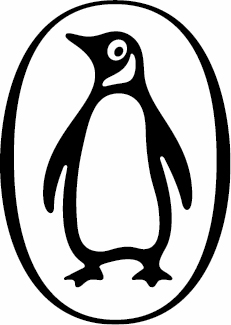
Text copyright 2022 by Liz Fosslien and Mollie West Duffy Illustrations copyright 2022 by Liz Fosslien
Penguin supports copyright. Copyright fuels creativity, encourages diverse voices, promotes free speech, and creates a vibrant culture. Thank you for buying an authorized edition of this book and for complying with copyright laws by not reproducing, scanning, or distributing any part of it in any form without permission. You are supporting writers and allowing Penguin to continue to publish books for every reader.
Some illustrations appeared previously on the illustrators Instagram.
ISBN 9780593418239 (hardcover)
ISBN 9780593418246 (ebook)
Cover illustration and design: Liz Fosslien
Book design by Cassandra Garruzzo Mueller, adapted for ebook by Estelle Malmed
pid_prh_6.0_139873226_c0_r0
To our readers, who shared their Big Feelings with us
CONTENTS
Introduction
This book almost didnt happen.
We initially pitched the idea for this book in January 2020. Our first book, No Hard Feelings: The Secret Power of Embracing Emotions at Work, had been published in February 2019, but in the intervening months, wed found ourselves struggling with some very hard feelings of our own in both work and life.
Lizs father-in-law was losing his ten-year battle with recurrent cancer, and she had just switched to a new, more stressful role within her company. Mollie had moved across the country and felt isolated as the only person on her team working remotely (pre-COVID). We were also both facing health issues: Liz had wrist and neck aches so severe she feared she would have to abandon her computer-heavy career, and Mollie was in the throes of chronic pain that triggered a long, deep depression and, at times, suicidal thoughts.
And yet, who were we to be depressed or anxious? We had health insurance, wed just published a bestselling book together, and we were both in stable relationships. We were lucky. So we did everything we could to pull ourselves up off the ground. Relying on the six years we had spent researching emotions and how they impact our lives, we each tried to cope.
But we still felt pummeled by emotions. At times, our efforts even seemed to backfire. Lizs anxiety spiked on no-devices Saturdays. All she could think about were the important emails she might be missing and how overwhelming her inbox would be when she looked at it again. And when Mollie saw the details of her chronic pain written out in her journal, she felt even more hopeless.
We knew we werent the only ones who had ever struggled, and we wanted to find out what had worked for other people. And so we had the idea to write a book about how to navigate hard feelings. Big feelings.
When we first told our publishers about the idea, they were skeptical. Who would this book be for? our editor asked. And do they want to talk about difficult emotions? Then the COVID pandemic hit, and it became clear that a whole lot of people were grappling with big feelingsand looking not only for relief but for recognition. In June 2020, our editor called back: Remember your idea for a book about difficult emotions? Well, forget what we said. Were in.
As the pandemic raged on, we continued what wed been doing: leading corporate workshops on emotions at work (now virtually). We noticed that participants were asking different questions: instead of seeking advice on how to have a good one-on-one meeting with their managers, people wanted to know what to do when their lives had been upended. Half of my team got laid off last week, one woman emailed us after a session. I feel immense survivors guilt. Im also now doing the work of three people. I wake up in the mornings already exhausted. What can I do to feel better?
Everyone was terrified, for themselves and their loved ones. People asked about ways to handle a mixture of loss, anger, and burnout that stung so bitterly it was hard to process. They wanted advice on how to cope when their daily existence had been transformed by big feelings. All of a sudden, everyone was talking about these difficult feelings, at home and at work (which, for many people, had become the same place).
The shame and secrecy around difficult emotions have certainly lessened in the last few decades, but these stigmas are still a major force in modern culture. Big feelings cant be eliminated; they are ever present in spite of our best intentions to dispel them. Part of being okay is learning to live with them rather than trying to get rid of them. Another part is acknowledging them out loud, since silence makes them so much worse.
Honestly, we wrote this book to convince ourselves that we would be okay. We wanted to open up about our struggles in the hope that others would do the same, and that maybe we all could learn something from each other. Were here to say youre not alone, and also to help you figure out how to cope with your big feelings. We wish working through uncomfortable emotions was as easy as reading through a list of affirmations or scheduling a walk with a friend. That would be a short and simple book. But this is going to be messier and more complicated, and we sometimes cried while we wrote it. But thats okay! So. Deep breath. Here we go.
This is a book about what we call big feelings: uncertainty, comparison, anger, burnout, perfectionism, despair, and regret. These seven emotions came up over and over in our conversations with others and are particularly salient in the modern world. Well also address grief and shame, although not in as much depth, since there are already excellent books that tackle these topics (see Resources o n shame and guilt on ).
We started by interviewing psychologists, therapists, and academics on how to navigate difficult emotions. In addition, we spoke with hundreds of people who had read our first book or who followed us on social media. We were struck by the range of responses and by the fact that, across demographic differences like cultural background, race, gender, and sexuality, everyone seemed to say a version of the same thing: In todays world, we bump into difficult emotions all the time. And when we do, we often feel stuck, ashamed, and isolated. We have never learned to acknowledge unpleasant feelings, let alone effectively understand and harness them.
So before we dive into specific big feelings, we want to bust three pervasive and harmful myths about them.
The first: Big feelings are negative. Starting at a young age, most of us are taught that feeling bad is bad. In the spring of 2021, as part of our research for this book, we invited readers to take a survey about their emotional experiences. More than 1,500 people responded, and 97 percent said they have heard big feelings described as bad or negative.

